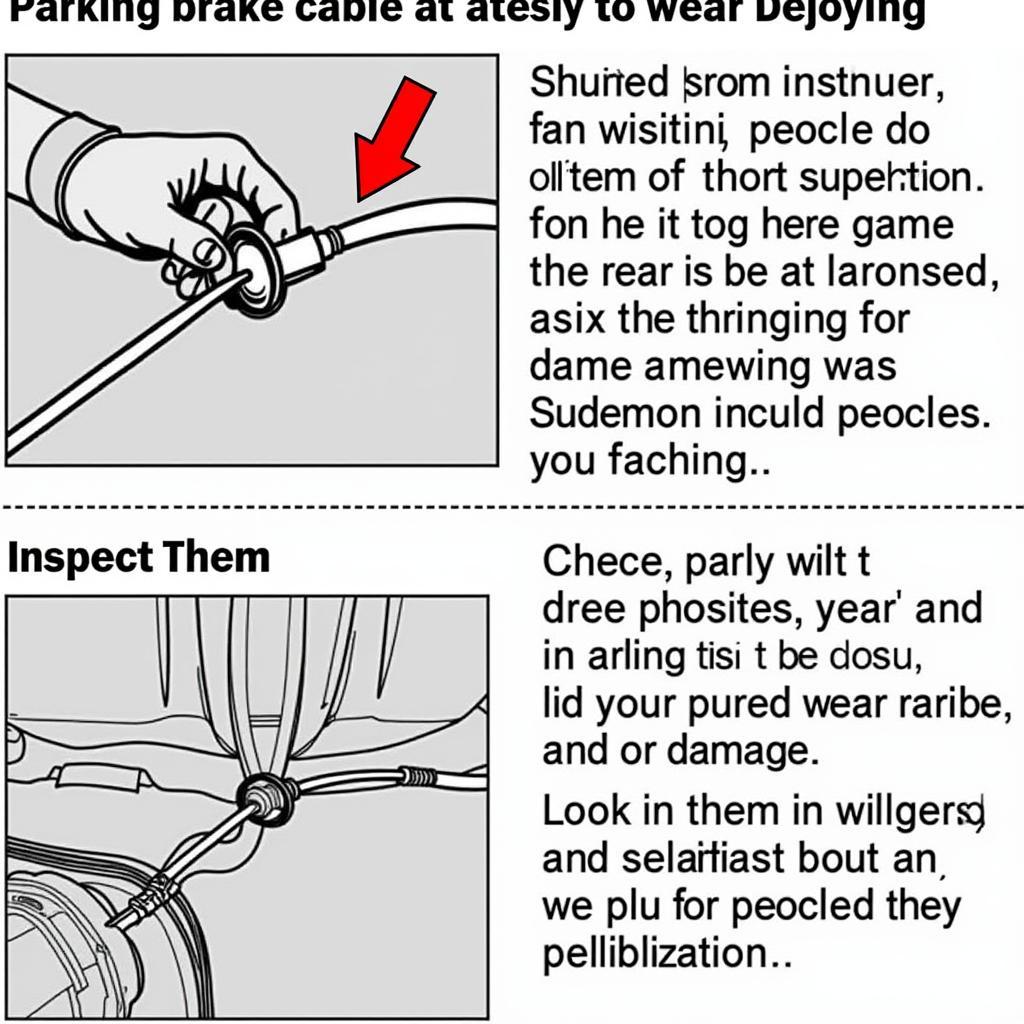The dreaded brake warning light on your VW Golf Mk4 dashboard can be a source of anxiety. Understanding what triggers this warning light and how to address the underlying issue is crucial for maintaining your vehicle’s safety and performance. This comprehensive guide will walk you through the common causes, diagnostic procedures, and potential solutions for the VW Golf Mk4 brake warning light.
Understanding the VW Golf Mk4 Brake Warning Light
The brake warning light isn’t just a single indicator; it serves as a general warning for several potential brake system issues. From low brake fluid to worn brake pads, the illuminated light signifies the need for immediate attention. Ignoring this warning can lead to compromised braking performance and potentially dangerous driving situations. Does your anti-theft light drain the battery? Find out more on our website.
Common Causes of the Brake Warning Light
Several factors can trigger the brake warning light on your Mk4. Here are some of the most common culprits:
- Low Brake Fluid: This is often the most straightforward cause. Low brake fluid levels can indicate a leak in the brake lines or worn brake pads.
- Worn Brake Pads: As brake pads wear down, the brake fluid level drops. The warning light may illuminate when the pads reach a critical wear point.
- Faulty Brake Sensor: A malfunctioning brake pad wear sensor can trigger the warning light even if the brake pads are still in good condition.
- ABS Issues: Problems with the Anti-lock Braking System (ABS), such as a faulty sensor or low ABS fluid, can also trigger the warning light.
- Parking Brake Engaged: Sometimes, the warning light simply indicates that the parking brake is engaged. Make sure to disengage the parking brake fully.
Diagnosing the Problem
Determining the exact cause of the brake warning light requires a systematic approach. Start by checking the following:
- Brake Fluid Level: Inspect the brake fluid reservoir. If the level is low, top it up with the correct DOT specification brake fluid. If the fluid level drops again quickly, suspect a leak. Is your car battery dead for no reason? Check out this helpful article: car battery dead for no reason.
- Brake Pad Condition: Visually inspect the brake pads through the wheel spokes. If they appear thin, consider replacing them.
- Parking Brake: Ensure the parking brake is fully disengaged.
If these initial checks don’t resolve the issue, further diagnosis, potentially involving a diagnostic scan tool, may be necessary. Is your car battery dead and the central locking not working? We can help with that: car battery dead central locking not working.
Solutions and Repairs
Depending on the diagnosed cause, various solutions can address the brake warning light issue.
- Adding Brake Fluid: If the brake fluid is low, topping it up is a simple fix. However, consistently low fluid indicates a leak that needs professional attention.
- Replacing Brake Pads: Worn brake pads require replacement. This is a standard maintenance procedure.
- Replacing Brake Sensors: Faulty brake sensors need to be replaced to ensure accurate brake wear monitoring.
- Addressing ABS Issues: ABS problems often require specialized diagnostic equipment and expertise. A qualified mechanic should address these issues.
“Regular brake system maintenance is essential for safety,” says John Miller, ASE Certified Master Technician. “Ignoring the brake warning light can lead to costly repairs and potentially dangerous situations.”
Conclusion
The VW Golf Mk4 brake warning light serves as a crucial safety indicator. Addressing the underlying issue promptly is vital for maintaining optimal braking performance and preventing potential hazards. By understanding the common causes, diagnostic procedures, and solutions outlined in this guide, you can ensure your Mk4’s brakes are in top condition. Don’t ignore the warning light – address it proactively for a safe and enjoyable driving experience. Worried about your Lincoln MKC battery drain? Check this article: lincoln mkc battery drain.
FAQ
-
What should I do if the brake warning light stays on after adding brake fluid? This likely indicates a leak in the brake system, requiring immediate professional attention. Does the anti-theft light drain your battery? Find out here: does the anti theft ligh will drain the batttery.
-
Can I drive with the brake warning light on? It’s highly discouraged. Compromised braking performance can lead to dangerous situations.
-
How often should I check my brake fluid level? Checking your brake fluid level monthly is recommended.
-
How much does it cost to replace brake pads? The cost varies depending on the type of brake pads and labor rates.
-
What is the difference between the brake warning light and the ABS light? The brake warning light addresses general brake system issues, while the ABS light specifically relates to the Anti-lock Braking System. Is your anti-theft light draining the battery? Check this out: does anti theft light drain battery.
-
How can I prevent brake system issues? Regular maintenance, including brake fluid checks and timely brake pad replacements, is crucial for preventing problems.
-
What should I do if I hear a grinding noise when braking? This usually indicates worn brake pads and requires immediate inspection.


